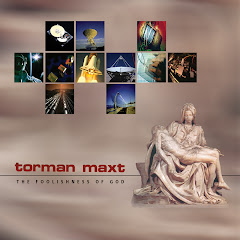One of the technical definitions of ‘progressive’ is “characterized by striving for change or innovation; moving and advancing.” For me, what makes something ‘progressive’ musically is when an artist, either through composition or production, is trying to move towards new ideas and methods. Most importantly, I think ‘progressive’ should be an adjective and not a noun. Progressive as an adjective makes for artists striving for something new and interesting. Progressive as a noun seems to set up criteria for what the music should be (e.g. long songs, lots of solos, high vocals, etc). It is amazing how many people don’t consider us ‘progressive’ because our songs don't seem long enough.
I feel that Torman Maxt is progressive in the sense that it strives to advance past what standard rock and metal have done. Compositionally, I have always been motivated by the classical composers. The Baroque period is my favorite, and I have tried to incorporate various forms of counterpoint in the songwriting. I would say that the layering of the guitars and vocals is what gives us our sound.
When describing the songs of a band like Dream Theater, I see them visually as very horizontal and linear. There is great instrumentation, but not necessarily composed with an emphasis on counterpoint. I have always been fascinated by Bach’s Brandenburg concertos where there are multiple instruments playing different parts simultaneously; this sounds more vertical as there are parts ‘stacked’ on top of one another. I would describe our sound as vertical. For example, the intro on opening track on our new cd has six different guitar parts happening at the same time.
Wednesday, February 27, 2008
Subscribe to:
Post Comments (Atom)


2 comments:
Wow! A musician with a brain and a great concept! Having been raised on Classical and being a huge Beatles (and American Underground)fan afterward, I can appreciate what you are talking about. And the idea of making your music available is smart--what can you tell from a review except that the listener liked it or hated it or that it is another "sounds like" photocopy band.
So, someone hears your music, decides they like it, wants to see you live and buy the second release or earlier stuff. And need we recall that the Grateful Dead made a huge fortune and huge fan list from ALLOWING bootleggers to plug into their own soundboard to get the best mix? People followed them all over the country to get these tapes. There is still a large trade in bootlegs from all their performances--their name lives on. Brilliant!
God bless you and more power to you, I say.
Hi new to this.
Post a Comment